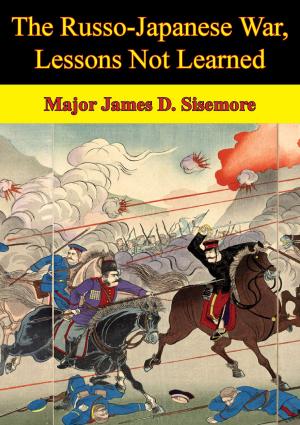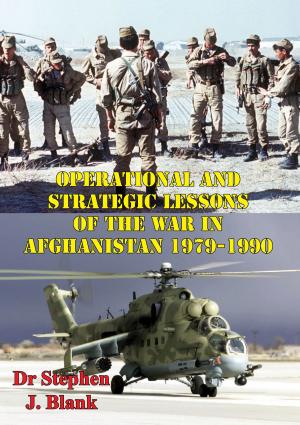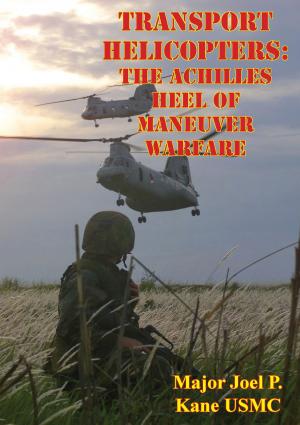The French Experience In Algeria, 1954-1962: Blueprint For U.S. Operations In Iraq
Nonfiction, History, Middle East, Persian Gulf War, Military| Author: | Major Greg Peterson | ISBN: | 9781786256256 |
| Publisher: | Tannenberg Publishing | Publication: | November 6, 2015 |
| Imprint: | Tannenberg Publishing | Language: | English |
| Author: | Major Greg Peterson |
| ISBN: | 9781786256256 |
| Publisher: | Tannenberg Publishing |
| Publication: | November 6, 2015 |
| Imprint: | Tannenberg Publishing |
| Language: | English |
In 1954 the French Armed Forces began a campaign in Algeria against the insurgent Front de Liberation Nationale (FLN) which had started a bloody uprising against French sovereignty. Initially, the French military did not have a viable counterinsurgency doctrine that was effective in defeating the FLN and destroying its network. It took them four years of trial and error to develop a doctrine and operational concept able to defeat the FLN inside Algeria and prevent outside assistance from reconstituting the FLN. By 1960 it was apparent the FLN could not win the liberation of Algeria militarily. However, the political situation respective to France and Algeria internally and internationally by then had changed to the point that military operations in the field were not going to affect the political outcome in Algeria. The French Armed Forces took too long to adopt an effective doctrine to combat the insurgent threat and by the time they were effective it was irrelevant.
Currently the U.S. is in occupation of Iraq and exercising sovereignty in that state. The U.S. Armed Forces are conducting counterinsurgency operations to defeat and dismantle the Former Regime Loyalists and various Islamic fundamentalist organizations inside the country. U.S. Armed Forces do not have an overarching counterinsurgency doctrine that is applicable to their operations in Iraq and similar to the French in Algeria they are going through a learning process. It is the author’s assertion that by studying the French experience in Algeria the U.S. Armed Forces can learn from the mistakes and victories of the French and hasten the learning process for counterinsurgency operations in Iraq. The French experience in Algeria demonstrates what can happen when a military takes too long to adapt to a changed battlefield.
In 1954 the French Armed Forces began a campaign in Algeria against the insurgent Front de Liberation Nationale (FLN) which had started a bloody uprising against French sovereignty. Initially, the French military did not have a viable counterinsurgency doctrine that was effective in defeating the FLN and destroying its network. It took them four years of trial and error to develop a doctrine and operational concept able to defeat the FLN inside Algeria and prevent outside assistance from reconstituting the FLN. By 1960 it was apparent the FLN could not win the liberation of Algeria militarily. However, the political situation respective to France and Algeria internally and internationally by then had changed to the point that military operations in the field were not going to affect the political outcome in Algeria. The French Armed Forces took too long to adopt an effective doctrine to combat the insurgent threat and by the time they were effective it was irrelevant.
Currently the U.S. is in occupation of Iraq and exercising sovereignty in that state. The U.S. Armed Forces are conducting counterinsurgency operations to defeat and dismantle the Former Regime Loyalists and various Islamic fundamentalist organizations inside the country. U.S. Armed Forces do not have an overarching counterinsurgency doctrine that is applicable to their operations in Iraq and similar to the French in Algeria they are going through a learning process. It is the author’s assertion that by studying the French experience in Algeria the U.S. Armed Forces can learn from the mistakes and victories of the French and hasten the learning process for counterinsurgency operations in Iraq. The French experience in Algeria demonstrates what can happen when a military takes too long to adapt to a changed battlefield.




![Cover of the book American Airpower Comes Of Age—General Henry H. “Hap” Arnold’s World War II Diaries Vol. I [Illustrated Edition] by Major Greg Peterson](https://www.kuoky.com/images/2015/november/300x300/9781786251510-UqO5_300x.jpg)








![Cover of the book The Red Battle Flyer [Illustrated Edition] by Major Greg Peterson](https://www.kuoky.com/images/2015/november/300x300/9781786255563-jnoX_300x.jpg)
![Cover of the book Key To The Sinai: The Battles For Abu Agelia In The 1956 And 1967 Arab Israeli Wars [Illustrated Edition] by Major Greg Peterson](https://www.kuoky.com/images/2014/august/300x300/9781782895794-016v_300x.jpg)
![Cover of the book Last Flight From Singapore [Illustrated Edition] by Major Greg Peterson](https://www.kuoky.com/images/2015/november/300x300/9781786257505-nFT2_300x.jpg)